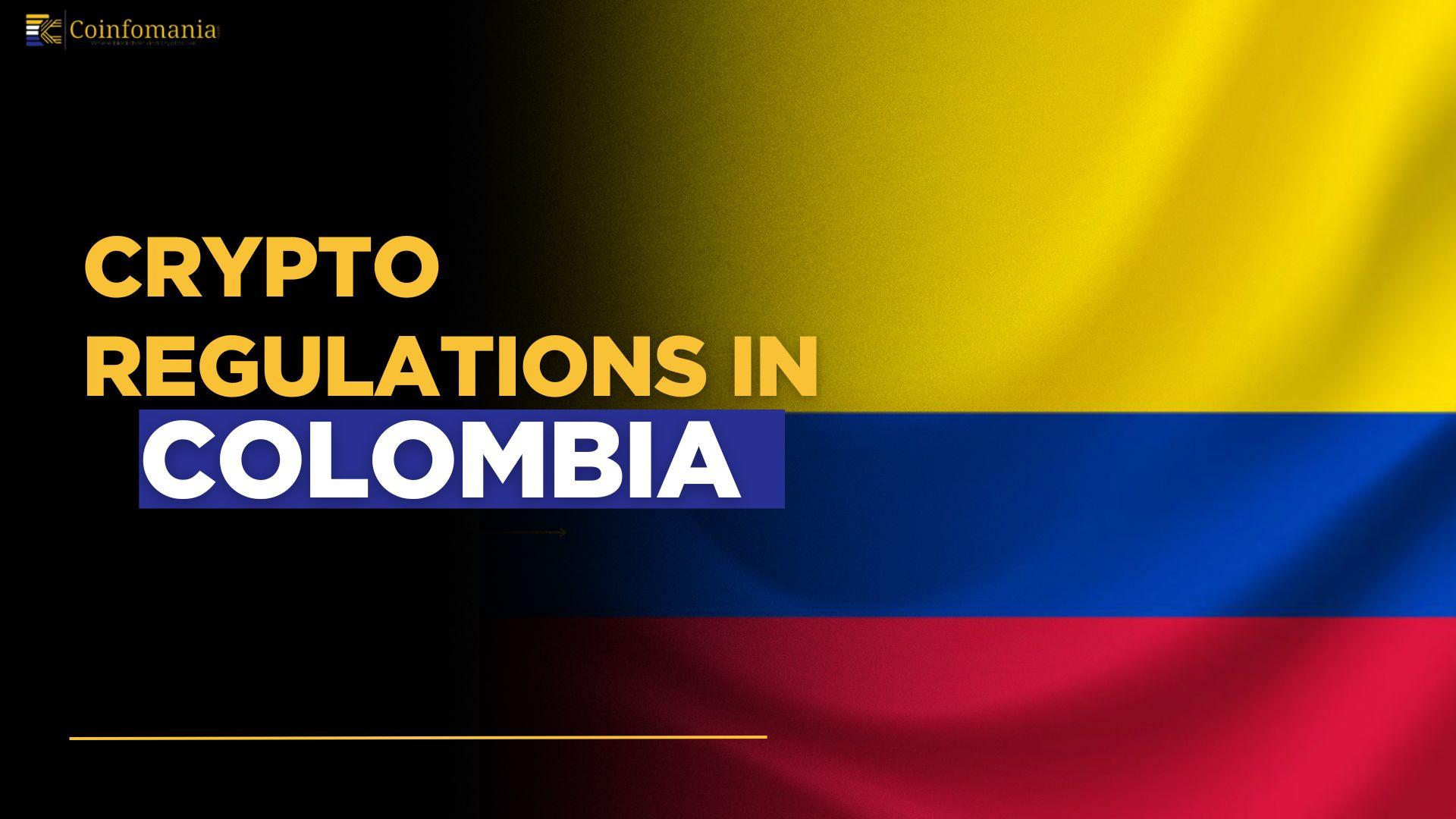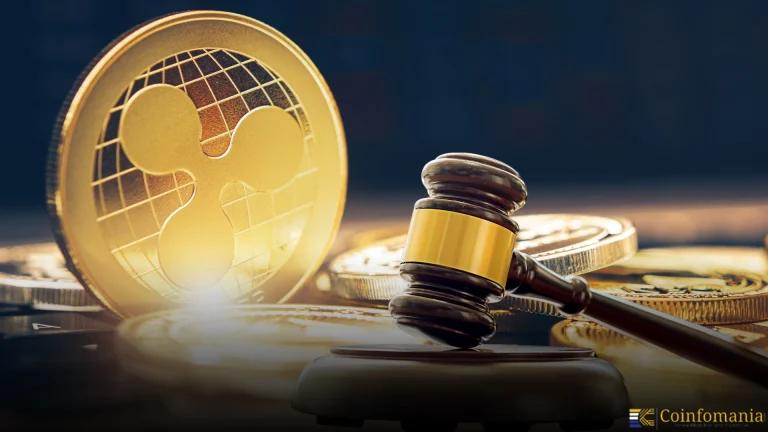Cryptocurrency Regulations in Colombia
Colombia has a careful yet welcoming view on cryptocurrency. It’s not official money, but people can freely buy, sell, and keep crypto. This balanced way keeps new ideas alive while managing risks, as crypto spreads quickly here. Over five million Colombians use digital coins, with billions traded each year, making it vital for investors, businesses, […]

Colombia has a careful yet welcoming view on cryptocurrency. It’s not official money, but people can freely buy, sell, and keep crypto. This balanced way keeps new ideas alive while managing risks, as crypto spreads quickly here. Over five million Colombians use digital coins, with billions traded each year, making it vital for investors, businesses, and regular folks to know the rules. This keeps them lawful and secure in a market of chances and challenges. The key overseers are the Banco de la República (BDR), the Superintendencia Financiera de Colombia (SFC), and the tax agency, Dirección de Impuestos y Aduanas Nacionales (DIAN).
Historical Context
Colombia first took a relaxed stance on crypto. In 2014, the Banco de la República (BDR) flagged its risks but didn’t stop it. By 2018, the Superintendencia Financiera de Colombia (SFC) ruled crypto isn’t cash or a security, keeping it free to use without rules. Things changed in 2020 when the SFC started a sandbox to try crypto with banks, signaling a move to watch it closer. In 2022, a bill to control exchanges appeared in Congress but didn’t pass. Over the years, Colombia has shifted from letting crypto be to setting up rules, spurred by its rise and fraud fears. This points to a future with crypto in the system, guided by clear laws.
Regulatory Framework
The Banco de la República (BDR) sets money rules and says crypto isn’t legal tender. The Superintendencia Financiera de Colombia (SFC) watches banks and financial firms, limiting their crypto dealings but testing ideas through a sandbox that ended in 2023. The Unidad de Información y Análisis Financiero (UIAF) tackles money laundering, making crypto firms report suspicious trades from 2022. The tax agency, Dirección de Impuestos y Aduanas Nacionales
(DIAN), handles crypto taxes.
No formal licenses exist for crypto businesses yet, but a proposed bill wants exchanges to register with the SFC. Anti-Money Laundering (AML) and Know-Your-Customer (KYC) rules are growing, crypto firms must check users and report odd moves to the UIAF, matching global anti-crime standards.
Tax-wise, DIAN sees crypto as an asset. Selling it for profit means income tax (10-39% for people, 35% for companies), based on earnings. Holding crypto isn’t taxed, but big unreported gains can trigger audits. Initial Coin Offerings (ICOs) and Security Token Offerings (STOs) aren’t clearly regulated, some might count as securities under SFC rules if they act like investments, but it’s case-by-case. Colombia’s framework is patchy, leaving gaps while regulators figure out the next steps.
Colombia’s Crypto Policies
Colombia’s population uses crypto for private deals, but it’s not legal money—you can’t force anyone to accept it. The government doesn’t push crypto use, focusing instead on controlling risks like fraud. Mining is legal and mostly unregulated, though miners pay income tax on profits and face no special bans.
There’s no national digital currency (CBDC) yet, but the Banco de la República (BDR) is watching global trends. Blockchain ideas, like a 2021 pilot with the World Economic Forum to track contracts, show interest in the tech. Breaking rules brings heat, unreported taxes mean fines or audits from DIAN, while money laundering can lead to jail under UIAF laws. A 2024 bill aims to license exchanges and protect users, signaling tighter policies ahead. For now, Colombia keeps crypto open but watches closely to avoid financial chaos.
Colombia’s Approach to Crypto Innovation
The Superintendencia Financiera de Colombia (SFC) ran a sandbox until 2023, letting banks test crypto trades with firms like Binance. It showed a willingness to explore, but no permanent rules followed. Businesses use crypto a bit, some shops and freelancers take it, but banks can’t join in, slowing growth.
Blockchain gets approval from projects like tracking government deals, hinting at future uses. Still, innovation lags without clear laws. Startups want freedom, but banks stay wary, sticking to peso-only rules. Colombia could lead in crypto if it blends this cautious testing with bold steps, but it’s moving slowly, balancing new ideas with old-school financial safety.
Notable Challenges and Issues
Colombia’s crypto rules aren’t consistent, SFC limits banks, but peer-to-peer trades slip by. Enforcement is tricky; anonymous deals and Decentralized Finance (DeFi) dodge regulators, while foreign platforms like Binance confuse oversight. The Unidad de Información y Análisis Financiero (UIAF) fights money laundering, but tech lags behind crypto’s tricks.
Public views differently, some see crypto as a cash lifeline amid peso woes, others link it to scams after big frauds like 2021’s Ponzi schemes. The media plays up both sides, fueling debate. Businesses face headaches too—banks block crypto firms, fearing risk, leaving them cash-strapped. Without solid rules, trust stays low, and growth stumbles. Regulators want safety but struggle to keep up with crypto’s speed and scale.
Key Regulatory Trends and Future Outlook
Recently, a 2024 bill pushed for licensing exchanges and cutting fraud, backed by the Superintendencia Financiera de Colombia (SFC) and lawmakers. Pilots since 2021 tested crypto with banks, hinting at bigger rules soon. The future looks tighter, expect mandatory registration, tougher AML checks, and maybe clear taxes by next year.
Colombia aims to meet global standards like the Financial Action Task Force (FATF), boosting trust and investment. If rules stay fair, it could draw crypto firms; if too harsh, they might flee to looser neighbors like Panama. Globally, Colombia’s moves could nudge South America toward unified crypto laws, especially as a trade hub. The next year or two will decide if it leans pro-crypto or locks it down, shaping its digital money future.
Conclusion
Colombia sits between crypto freedom and control—open to use, but strict on banks and taxes. Investors, businesses, and users need this info to dodge fines and seize chances in a growing market. With rules shifting fast, staying sharp matters. Colombia’s cautious steps could make it a crypto player in Latin America, blending innovation with safety. Keep an eye out—changes here affect wallets and the world.
FAQs
1. Is cryptocurrency legally recognized in Colombia?
Yes, individuals are allowed to purchase, sell, and possess cryptocurrency, but it is not legal tender; only the peso is officially accepted.
2. Are cryptocurrency exchanges required to hold a license in Colombia?
Not at present, but a legislative proposal from 2024 mandates registration with the Superintendencia Financiera de Colombia (SFC).
3. How are cryptocurrency profits taxed in Colombia?
Cryptocurrency is taxed as income between 10% and 39% for individuals and 35% for companies based on total income.
4. Do Colombian businesses accept cryptocurrency payments?
Yes, in Colombia, businesses use cryptocurrency payments if both parties agree mutually.
5. Does Colombia legalize cryptocurrency mining?
Yes, mining is legal with minimal rules, though income tax applies to any profits.
6. Do Colombian cryptocurrency firms comply with anti-money laundering regulations?
Yes, every crypto firm in Colombia needs to check identity verifications and report any suspicious transactions to the Unidad de Información y Análisis Financiero (UIAF) from 2022.
7. What happens if cryptocurrency taxes are unpaid?
According to the Dirección de Impuestos y Aduanas Nacionales (DIAN), if anybody fails to pay taxes on time, penalties are issued for unreported earnings.
8. Are Initial Coin Offerings (ICOs) regulated in Colombia?
No uniform rules apply; some ICOs may fall under SFC securities regulations, evaluated individually.
9. Has Colombia introduced a central bank digital currency?
No, a CBDC does not exist, but the Banco de la República (BDR) observes global trends.
10. Can Colombian banks handle cryptocurrency transactions?
No, the SFC bars banks from cryptocurrency activities, despite a pilot program ending in 2023.
Follow us on Google News
Get the latest crypto insights and updates.
Related Posts

Ripple Highlights Custody as Key to $18.9T Tokenized Assets by 2033
Shweta Chakrawarty
Author

Hong Kong SFC Issues New Custody Rules for Crypto Platforms
Shweta Chakrawarty
Author

South Korea and Vietnam eye $150B trade despite Trump tariff
Shweta Chakrawarty
Author